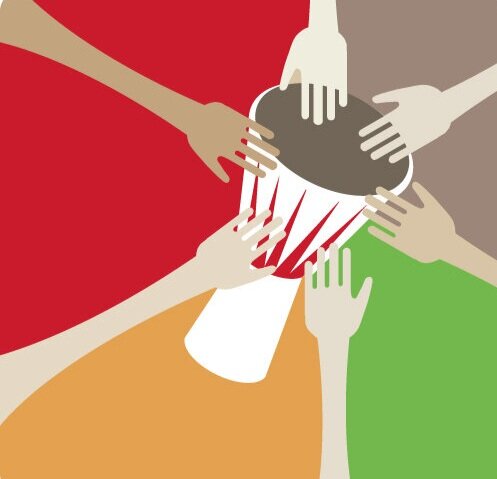
The ultimate way to connect teams, build trust, and combat stress and anxiety.
Corporate Team Building.
Focusing on Your Team
Drumming for Success provides immediate relief of anxiety and provides lasting stress relief. Your employees will create an original “work rhythm” that they will remember forever and refer to when things in their work life become stressful.
In terms of modern neuroscience, when we play rhythm together in a group our brains release natural endorphins that increase feelings of well-being.
When participating successfully in group drumming people are “in the moment”, meaning that all other thoughts about work, family and the pandemic are on hold. There are only the thoughts related to being physically, mentally and emotionally engaged in the group rhythm. Therapists call this “controlling the racing thoughts”.
It is truly a gift and a tremendous relief for people at this time to get a break from all the drama and trauma.
On-Site and Virtual Sessions are available!
On site, Drumming for Success (DFS) is a safe, physically distanced activity for small groups of 10-12 people throughout the day.
Virtual Drumming for Success groups provide the same benefits because playing rhythm together is the key element of this team building activity.
Objectives
Why is group drumming such a powerful tool for team building and group cohesiveness?
Throughout history, all traditional cultures around the world have used group drumming to facilitate group cohesiveness. We are rhythmic beings in a rhythmic world. When we drum together we feel connected and exhilarated.
As one business owner said, “you’re bringing the wisdom of the ancients, the power of collective community percussive rhythm-making, into the 21st century.”
How does Drumming for Success improve work productivity?
DFS is a fun drumming activity with an embedded social-emotional curriculum of work related group effectiveness skills. After each successful drumming exercise there is brief discussion of drumming/work related analogies. For example, unison playing requires everyone to do the same thing together at the same time. Polyrhythmic playing, different rhythms that are coordinated, requires everyone to do their own unique part while staying coordinated and connected to everyone else in the group.

